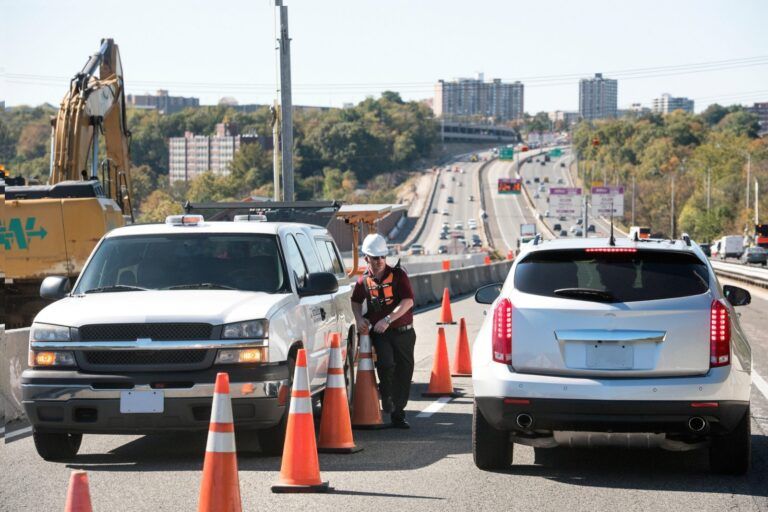The Virginia Tech Transportation Institute (VTTI) is collaborating with other transportation stakeholders to look at how AVs might deal with unusual road situations such as workzones or crashes, and how connected vehicle systems might help.
The research is funded by a $7.5 million grant from the US Department of Transportation — one of two competitive federal awards that the transportation institute received in September. Additional support is provided by the Virginia Department of Transportation and cost share from the project team members.
“Virginia is proud of VTTI as the recipient of this USDOT grant,” said Virginia director of transportation research and innovation Cathy McGhee. “Our partnership in researching automated vehicles and their interaction with workzones and incident scenes is crucial in finding ways to reduce injuries and fatalities of those who work in and respond to events on our roadways. Law enforcement officers, firefighters, emergency medical technicians, safety service patrollers, and others put their lives on the line every day to protect the public, and we must leverage this technology in ways that enhances their safety.”
The dynamic nature of public safety scenarios could prove challenging for automated driving systems, according to Mike Mollenhauer, director of VTTI’s Center for Technology Implementation. Mollenhauer is leading the project team along with Zachary Doerzaph, the director of VTTI’s Center for Advanced Automotive Research.
“Let’s say a car with no front-seat occupants approaches a freeway crash that is blocking lanes, and a police officer is directing traffic. How does the officer direct the car around the crash and then know that the vehicle will respond appropriately? This is just one of many scenarios for which industry, government, and academia must collaboratively provide solutions in order to enable public trust in this technology. VTTI and our project partners are honoured to receive this grant and be entrusted with this responsibility,” said Mollenhauer.
Over the next three years, the research team plans to identify solutions and build highly automated Level 4 reference vehicles along with the connected infrastructure needed to support them. In the last phase of the project, they intend to hold three demonstrations to showcase the technology safely navigating challenging scenarios. The demos will take place in the greater Washington, DC, area on the I-95 Express Lanes operated by Transurban.
“At Transurban, we know we can’t rely on concrete and steel alone for tomorrow’s transportation solutions,” said Jennifer Aument, president of Transurban North America. “Technology must be put to work to ensure that we can navigate unforeseen dynamics smarter and faster to protect drivers, road crews and first responders. I am so proud to join this diverse consortium, bringing the best of the public and private sectors together with a shared commitment to realize safer, more integrated road networks.”
Following the on-road demonstrations, the Global Center for Automotive Performance (GCAPS) will then process the vehicle data that was collected to create 3D simulations of the driving scenarios. The simulations could help inform machine learning algorithms, industry and national standards, and educational materials for public service providers.
“GCAPS is thrilled about being part of a collaboration in such a significant area for automated driving research. We are looking forward to working with a great team to innovate technical solutions and contribute to the future of transportation safety,” said Frank Della Pia, executive director of GCAPS.
The on-road trials are anticipated to take place in 2022. More information will be announced as it becomes available.
“I’ve long called for increased funding for unmanned systems research because I know that innovation and advancement in this field can boost US competitiveness, increase efficiency, and ultimately, improve lives across the globe,” said US Senator Mark R. Warner (D-VA), a former technology entrepreneur, in an earlier announcement of the DOT grants. “With new technologies, and particularly with automated driving systems, it’s important to get safety right the first time. That’s why I’m so excited to announce that this federal funding will support VTTI in continuing to safely blaze the trail for the future of transportation.”





